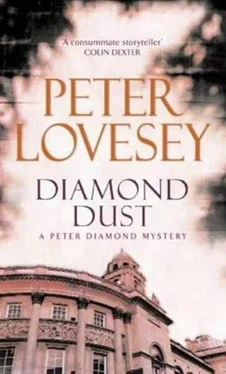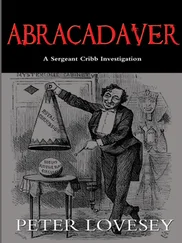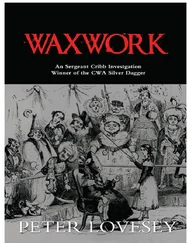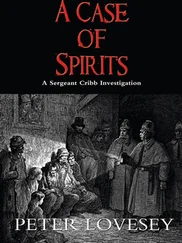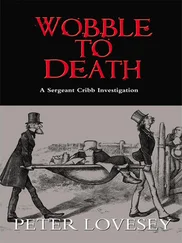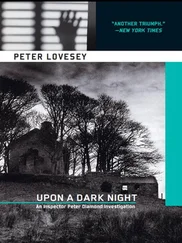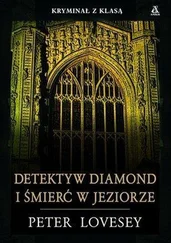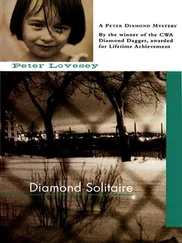Of course he tried immersing himself in work, but that was fraught with problems he hadn't experienced before. The danger of working in isolation, he learned the hard way, is that you are forced to rely on hunches and theories. In a CID team, you have information coming in all the time, ninety-five per cent of it useless, but at least your brain is occupied reading reports and statements and checking the records. In the Yorkshire Ripper inquiry they had so many statements on file that the floor of the incident room started to cave in. The storage problem is less in this computer age, more a matter of pressing the right keys. McGarvie could cross-reference all known cases of murder using.38 revolvers; shootings in public parks; suspicious deaths of police and their families. He could analyse statements, classify the long list of objects found in Victoria Park and Charlotte Street Car Park, go through years of Peter Diamond's case notes looking for people with grudges. Bloody McGarvie had plenty to occupy him.
This parallel investigation of Diamond's had to be run on a wing and a prayer. A certain amount leaked out of the incident room, of course, through old colleagues, and he barged in there repeatedly on the flimsiest of pretexts, but it was obvious the team were under instructions not to tell him things.
One afternoon, in a quiet corner of the canteen, Keith Halliwell confided to him, 'The lads are on your side, guv, even if it doesn't look like it. There's a lot of anger about the way you're being treated.'
'I'm not looking for sympathy, Keith. A result is all I want.'
'It isn't sympathy. Well, you know what I mean. We do feel for you. Of course we do. This is something else. Personality.'
'The Big Mac?'
'He doesn't speak for the rest of us. We want you to know that.'
'He's doing the same as I would. I'm a hard-nosed git when I'm on a case, as you well know.'
In truth, he wasn't impervious to sympathy, or support from his colleagues. However, he would trade it for hard facts on where the investigation was leading – if anywhere. Too many theories are a pain. They keep you awake at night. They're difficult to disprove without the back-up of the murder squad.
His only back-up was the snout, Bernie Hescott, and he hadn't anything to offer when Diamond drove to Bristol for the fourth time and looked him up in the Rummer. 'I'm working on it, Mr D. Got more feelers out than a family of bugs. I'm not sleeping at nights.'
'Join the club.'
'Give me another week and I might have something for you.'
'This isn't what I came to hear, Bernie.'
'It's all the people I have to see.'
'You wouldn't be stringing me along?'
'No way. Wednesday, then. And Mr D…'
'Yep?'
'I've run through my expenses.'
He got twenty more.
Next morning, appallingly early, Peter Diamond's lie-in after a night of little sleep was disturbed by a heavy vehicle drawing up outside the house, followed by a voice issuing orders. He would have sworn and turned over in bed if the voice had not been pitched so low that it was obvious something underhand was going on. He groaned, sat up, shuffled to the bedroom window, and was amazed to see men in police-issue Kevlar body armour scrambling out of the back of a van. Two of them carried an enforcer, the 'fifty-pound key' used by rapid entry teams as a battering ram. Curtis McGarvie got out of a separate car and marched up the short path to the front door.
Diamond belted downstairs in the T-shirt and shorts he slept in and flung open the door. 'What the fuck is going on?'
McGarvie raised his palms in a pacifying way. 'Stay cool, Peter. We need to make a further search.'
'Go to hell.'
'Can we speak inside?'
'You're out of your mind.'
'I'd rather not have this conversation on your doorstep.'
'What are you looking for?'
'The firearm used in the murder of your wife.'
'For crying out loud.'
'So I'm formally requesting permission to search your house and garden.'
'You can piss off, McGarvie.'
'I thought that would be your response.' He handed over a sheet of paper. 'This is your copy of a warrant issued by a magistrate last night.'
'A search warrant} This isn't happening.'
But it was. And you don't argue with a warrant unless you want your door smashed in. Diamond stepped aside, and three of the ninjas moved in. 'Why wasn't I told? You can pick up a phone.'
'Do you want it straight? I had reason to think you might dispose of the evidence.'
He was speechless.
McGarvie admitted more men, and every one avoided eye contact with Diamond. They obviously had their orders. They must have been briefed before dawn. Some went straight upstairs, others through to the kitchen.
Diamond slumped into a chair in the front room.
McGarvie told him, 'You know you have the right to ask a friend or neighbour to witness the search?'
'I don't need lecturing on my rights.'
'Don't you want to see what's going on?'
'No. This whole charade is a waste of time.'
'In that case why don't you get dressed? I'm going to take you in, whether we find anything or not.'
'You'll find sod all. You're out of order. I'll hang you out to dry for this.'
'It's all according to the book.'
'I opened the place to you before. You've been through here already.'
'That wasn't a full search.'
'God help us.' Diamond trudged upstairs and saw what he meant. Three men in the bedroom were ripping the fitted carpet from its stays. His entire wardrobe had been emptied and the clothes were on the bed. All the drawers had been removed from the chests and sideboard.
He looked out of the window. Two officers with metal detectors were at work in the garden.
He grabbed a pair of trousers and got into them.
At the nick – his own nick – they offered to call his solicitor. He said he'd done nothing wrong, so he didn't need one.
They kept him waiting over three hours.
His anger hadn't subsided. In the interview room with the tapes running he stared McGarvie out like a boxer at the weigh-in. A sergeant he'd never seen before was in the other chair. He was damned sure Georgina and most of the senior detectives were watching on video monitors.
McGarvie said in that voice like a rusty lawn mower, 'At the previous interview, you stated that you didn't possess a gun. Is that still your position?'
His thoughts flew to the empty shoebox in the loft. They couldn't have found anything. He'd gone through the place. 'Yes, it is.'
'When you served in the Met, you were an authorised shot – right?'
'We've been over this.'
'For the tape, would you confirm it?'
'I was trained to use firearms, yes.'
'Were there occasions when you were issued with a handgun?'
'Yes.'
'A Smith & Wesson revolver?'
He said with mounting unease, 'That was the standard sidearm before they switched to automatics.'
'Point three-eight?'
'You know as well as I do.'
'At Fulham, where you served, guns were issued and returned according to procedure, were they?'
'To my knowledge, yes.'
'You always returned the guns you carried?'
'Of course.' This could only be leading one way, he thought with disaster bearing down on him. How could McGarvie have learned that he acquired that gun back in the nineteen-eighties? It had been signed out and signed in again.
'Before we go on,' McGarvie said with obvious relish in prolonging this, 'I'd better give you some background. We've been in contact with the Met.'
'The Met – what for?'
'A certain Smith & Wesson revolver at Fulham – where you served – went missing in nineteen eighty-six, about the time the change to automatics took place. It hasn't been traced since.'
'Nothing to do with me.'
Читать дальше
